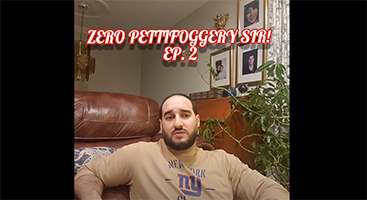The Latest In NJ Law:
July 13th, 2018 – Update on Municipal Court Sentencing for Driving Under the Influence
Before the Superior Court of New Jersey – Appellate Division, the State of New Jersey v. Pedro Anicama was decided on July 13th, 2018. In the opinion, Judge George S. Leone wrote that the Amendment intended to strengthen penalties for a Third DUI/DWI to 180 Days in Confinement would be undermined by the permitting of Defendants to serve that confinement on weekends and not consecutive. The Judge seemingly calls for legislative action on resolving the Amendment where the language seemingly created room for interpretation which was previously allowed by the Municipal Court Judge in this matter. To read more about this decision, click here.
July 11th, 2018 – Update on the Bail Reform Act
For context, we have previously updated ya’ll on the case of Brittan Holland and Lexington National Insurance Corp. v. Rosen with the following post:
“On September 22nd, 2017, U.S. District Judge Jerome Simandle, in Brittan Holland and Lexington National Insurance Corp. v. Rosen, refused to halt the enforcement of NJ’s Criminal Justice Reform Act following suit by the Plaintiffs based on constitutional challenges under the Fourth, Eighth, and Fourteenth Amendments. The Judge’s decision, albeit on the the motion for preliminary injunction, started with a balance of the risks shows the harm to others is greater if injunction granted vs. denied. To read more about the ruling, click here.”
On July 10th, 2018, the U.S. Court of Appeals for the Third Circuit ruled that the Plaintiff Lexington National Insurance Corp. did not have standing to challenge New Jersey’s Bail Reform Act. Lexington National Insurance Corp. underwrites bail bonds in New Jersey and has been fighting the Bail Reform Act since its New Jersey business has dwindled under it.
However, the Court did hold that Brittan Holland did have standing to challenge the law but “failed to demonstrate a likelihood of success on his assertion that bail reform violates his rights under the 4th, 8th, and 14th Amendments of the U.S. Constitution.” Holland is under electronic monitoring while awaiting trial on aggravated assault charges stemming from his involvement in a bar fight.
Because of the procedural aspects of the case, the litigation has not been dismissed as of yet, however, the ruling opens the door for the State to file a Motion to Dismiss the case. To read more about this precedential ruling, click here.
June 22nd, 2018 – An Update on Cell Phone Location Usage by Police
On June 22nd, 2018, The Supreme Court of the United States, in a 5 to 4 Decision, held that Law Enforcement are required to obtain a Warrant to gather Cell Phone Location Data as evidence against a Criminal Defendant. The decision holds Searches for Cell Phone Location Data as a Fourth Amendment Search. The case, Carpenter v. United States, had arguments before SCOTUS on November 29th, 2017 with attorneys from the ACLU based on a 2011 Robbery in Detroit in which Police utilized almost 13K different locations from Carpenter over almost half a year.
This decision, though unrelated, comes after the fervor over the Podcast “Serial,” which chronicled the case of Adnan Syed convicted of murdering his former girlfriend Hae Min Lee. In his case, the State utilized this evidence to forward their narrative of his actions. In March 2018, a new trial was provided for Syed amidst allegations of ineffective assistance of counsel, among other issues.
Historically, the usage of this type of evidence has been severely unreliable but, nonetheless, relied up by Prosecutors to show the location of a Criminal Defendant. The crux of its unreliability is based on that fact that: (1) The cell phone may use different towers based on strength of service, (2) The cell phone may use different towers based on abundance of usage by others on the same tower, and (3) The cell phone doesn’t always pick the closest cell phone tower to send cellular signals.
The decision is a victory for privacy rights to an extent, but it’s not expected to be a tidal wave of change as competent defense experts have been readily available to testify against the reliability of this type of evidence for years, including in the Syed matter discussed above.
To read more about Carpenter v. United States, click here.
October 5th, 2017 – Update on GPS Usage by Police
On October 5th, 2017, Judges in the State of New Jersey Appellate Division ruled upon The State of New Jersey v. Dammen D. McDuffie which discussed the State’s usage of GPS and refusing to disclose information on the evidence the State used to prove their involvement in two burglaries. The Court upheld the privilege asserted by the State and weighed four different factors to make their determination. To read more, click here.
September 29th, 2017 – Update on the Bail Reform Act
On September 29th. 2017, Judges in the New Jersey Appellate Division ruled upon the case of The State of New Jersey v. Imani Williams in which the question presented was, in a pretrial detention hearing, if the Defendant’s pregnancy should be given greater consideration than any other pretrial detention factor in a judge’s assessment under the Bail Reform Act. The Judge whom allowed release based on the Defendant’s 8-week pregnancy, was overruled as the Appellate Division held that “Pregnancy, like any other medical condition, is considered only for its impact on the risk of a defendant posing a danger to the community, obstructing justice or failing to appear n court.” To read more on the case, click here.
September 22nd, 2017 – Update on the Bail Reform Act
On September 22nd, 2017, U.S. District Judge Jerome Simandle, in Brittan Holland and Lexington National Insurance Corp. v. Rosen, refused to halt the enforcement of NJ’s Criminal Justice Reform Act following suit by the Plaintiffs based on constitutional challenges under the Fourth, Eighth, and Fourteenth Amendments. The Judge’s decision, albeit on the the motion for preliminary injunction, started with a balance of the risks shows the harm to others is greater if injunction granted vs. denied. To read more about the ruling, click here.
August 28th, 2017 – Update on Canine Sniffs
With a ruling on June 10th, 2017 and published on August 28th, 2017, the New Jersey Supreme Court overturned State of New Jersey precedent requiring reasonable suspicion of contraband before Police/Law Enforcement can deploy a Canine Sniff. In State v. Dunbar, the Court ruled suspicionless canine sniffs are permitted as long as they do not prolong an otherwise lawful seizure. To read more about the intricacies of this ruling, click here.






